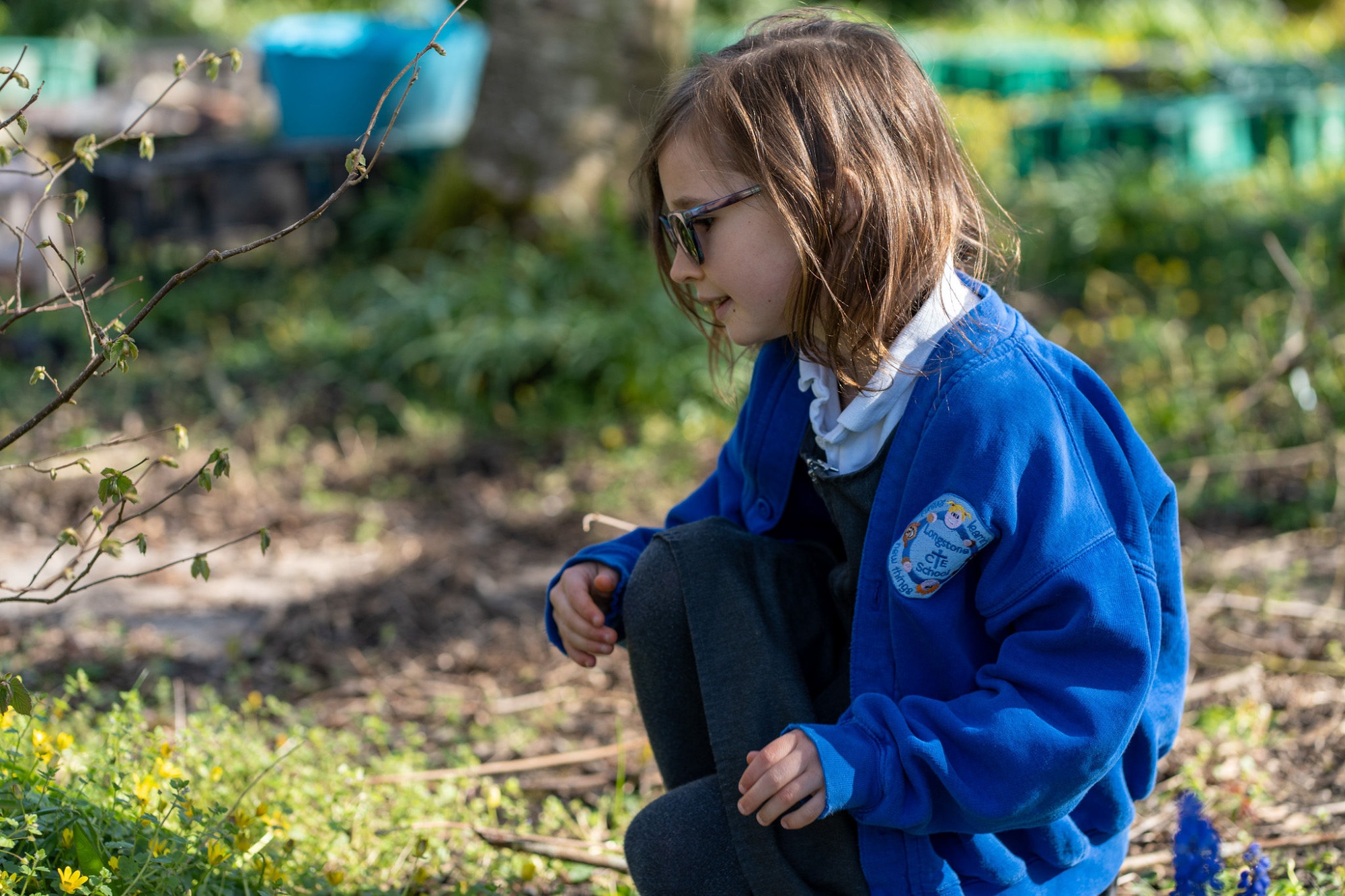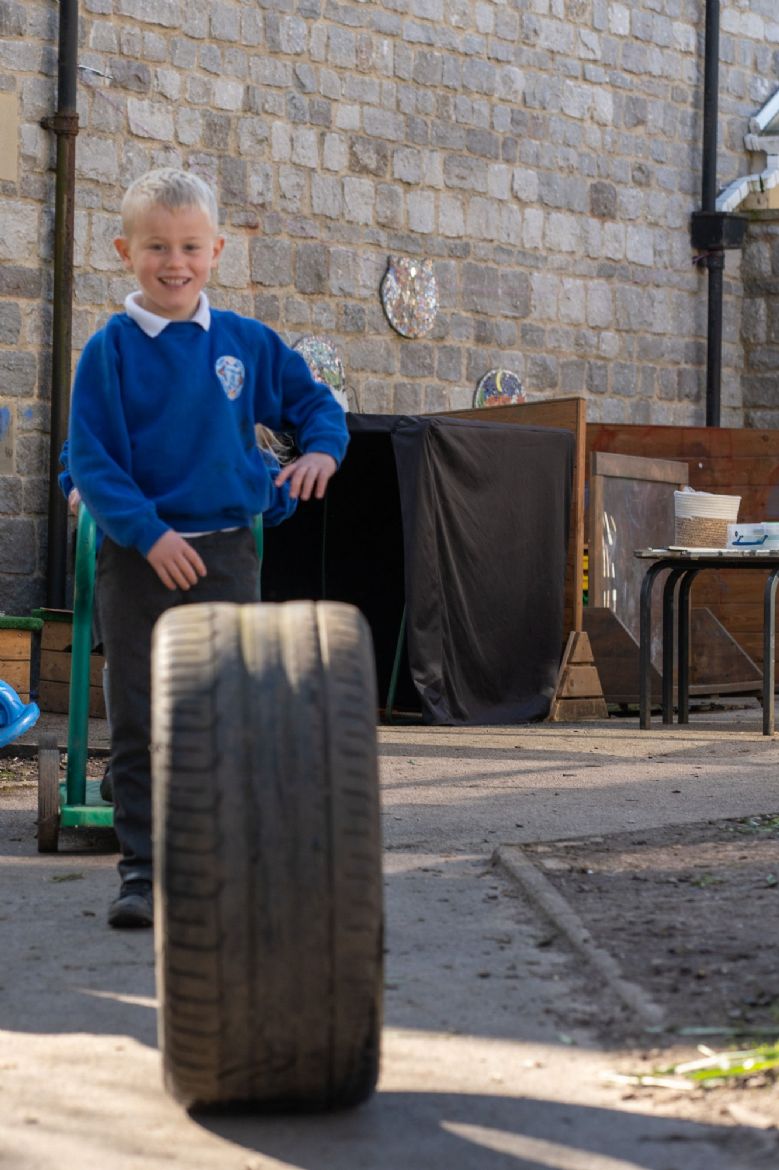Outdoor Education
Longstone is lucky enough to have a large amount of green space both on and around the school site... But outdoor learning is so much more...
What is Outdoor Learning?
Outdoor learning is a broad term that includes: outdoor play (learning through play), school grounds projects, environmental education, recreational and adventure activities, personal and social development, work within the local community and more. Outdoor learning does not have a clearly defined boundary but it does have a common core in that it can provide a dramatic contrast to the indoor classroom. There is strong evidence that good quality outdoor learning adds much value to classroom learning. It leads to a deeper understanding of concepts that span traditional subject boundaries and which are frequently difficult to teach effectively using classroom methods alone.

What are the benefits of outdoor learning?
Outcomes for high quality Outdoor Learning:
When planning children’s outdoor learning opportunities we include outcomes based on both academic and social/motivational aspects. The 10 outcomes for high quality outdoor learning are taken from the English Outdoor Council. They are:
1. Enjoyment
Young people enjoy participating in outdoor activities and adopt a positive attitude to challenge, learning and adventure.
2. Confidence and character
Young people are developing personal confidence and character through taking on challenges and achieving success.
3. Health and wellbeing
Young people are learning to appreciate the benefits of physical fitness and the lifelong value of participation in healthy active leisure activities.
4. Social and emotional awareness
Young people are developing their self-awareness and social skills, and their appreciation of the contributions and achievements of themselves and of others.
5. Environmental awareness
Young people are becoming alive to the natural environment and understand the importance of conservation and sustainable development.
6. Activity skills
Young people are acquiring and developing a range of psychomotor skills in support of their participation in outdoor pursuits, recreation and exploration.
7. Personal qualities
Young people are demonstrating increased initiative, self-reliance, responsibility, perseverance, tenacity and commitment.
8. Skills for life
Young people are developing and extending their key skills of communication, problem-solving, leadership and teamwork.
9. Increased motivation and appetite for learning
Young people are displaying an increased motivation and appetite for learning that is contributing to raised levels of attainment and progress in other aspects of their development.
10. Broadened horizons
Young people are broadening their horizons and becoming open to a wider range of employment opportunities and life chances, life choices and lifestyles.
Where Might Outdoor Learning Take Place?
The school grounds: We are exceptionally lucky to have extensive grounds, a forest school area, our own enclosed pond complete with newts and dragonflies, a variety of class gardens and immediate access to The Monsal Trail, which all offer excellent opportunities for both formal and informal learning.
Our Donaldson Class children have the benefit of free flow access to outdoor learning provision on a daily basis, with experiences of fire pits, den building and nature inspired activities regularly featuring in their weekly activities.
The Local Learning Area and local community: The locality around our wonderful school harbours a wealth of opportunities within an accessible distance. Learners can develop their skills to explore their local environment including nature reserves, parks, canal, woodland areas. Within the village, there is a place of worship, park, Village Hall, Village Shop and other local places of business.
Visits/activities within the school's local area that are part of our broad curriculum offer and take place during the normal school day
Wild Week
Each year our children take part in an outdoor education themed week, called 'Wild Week.'
Wild Week is an opportunity for all children to experience the wonderful surroundings of The Peak District National Park, learn how to be stewards of our local environment, to encounter and manage risk and to apply problem solving skills.
Wild Week activities differ from year to year, but can include:
Visits to the local outdoor persuits centre - Thornbridge Outdoors.
Orienteering
Den building
Flint & Steel Firelighting
Local area walks
Natural art and DT activities
Pond dipping
Visits from Edale Mountain Rescue Team
